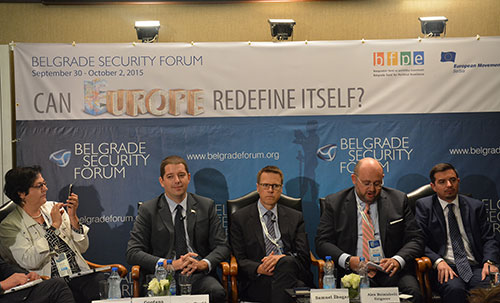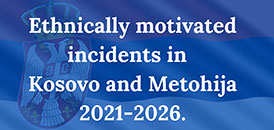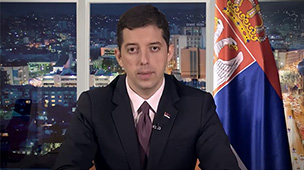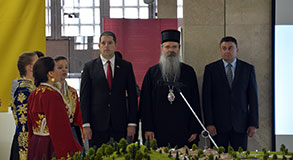Đurić: Serbs and Albanians can prosper only if they cooperate
Director of the Office for Kosovo and Metohija Marko Đurić said today that Serbs and Albanians can only prosper if they cooperate, and that there are no limits in the Brussels dialogue as to what can be achieved in terms of political and economic cooperation, provided that the issue of status of Kosovo and Metohija is left out, to the extent possible.

"We have to agree to disagree on the issue of status," Đurić said at the "Kosovo and Serbia: How much longer before normality" session held at the Fifth Belgrade Security Forum.
Asked how much longer before normalization, Đurić said that it depends on both sides and their ability to insulate their differences.
The two sides should cooperate in many fields, from economy through to the sensitive area such as security, Đurić said, adding that there are a large number of people from the region going to the Middle East to fight for the Islamic State and that it is also an issue on which the two sides could cooperate.
Stating that so far 28 agreements have been achieved in the framework of the Brussels dialogue, Đurić said that it is not agreements that can reconcile people. Instead, there must be more activities to help people start to trust each other.
"If after each stage in the dialogue different messages or messages are sent out that do not help improve communication among people, then our time in dialogue is not well utilized," he said.
Đurić noted that there are evident positive changes in the dialogue concerning the attitude of both parties towards the past.
Đurić said that the Kosovo Albanians have no reason to worry about the Community of Serbian Municipalities, since it only aims to promote the rights of the remaining Serbian community in Kosovo and Metohija.
He said that more needs to be done to take care of 60 percent of the unemployed young people in Kosovo and Metohija who are massively leaving because they don’t believe that the entire region will get to the promised destination.
Đurić said that he was confident that the Community of Serbian Municipalities would provide the Serbs in Kosovo and Metohija with enough political power to deal with their own issues and enjoy the standards similar to those that exist in other European countries.
"I am pleased with the agreements, but I'm embarrassed on behalf of all of us for having to explain ourselves to someone for affording more human rights," he said, adding that these areas are unconnected, with the number of population that cannot threaten the majority.
Speaking about the further course of the dialogue, Đurić said that he received instructions from the Prime Minister Aleksandar Vučić to seek solutions to further advance the flow of goods and people across the administrative line, as well as look for solutions for the status of the Serbian Orthodox Church, the missing persons and the return of the displaced.
According to him, the percentage of returns to Kosovo and Metohija is the lowest compared to all regions of the world, totaling at less than 10 percent.





